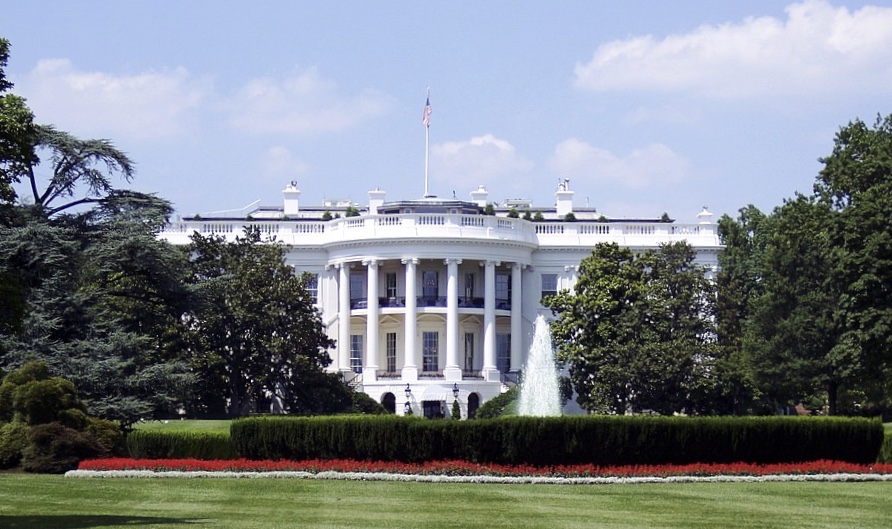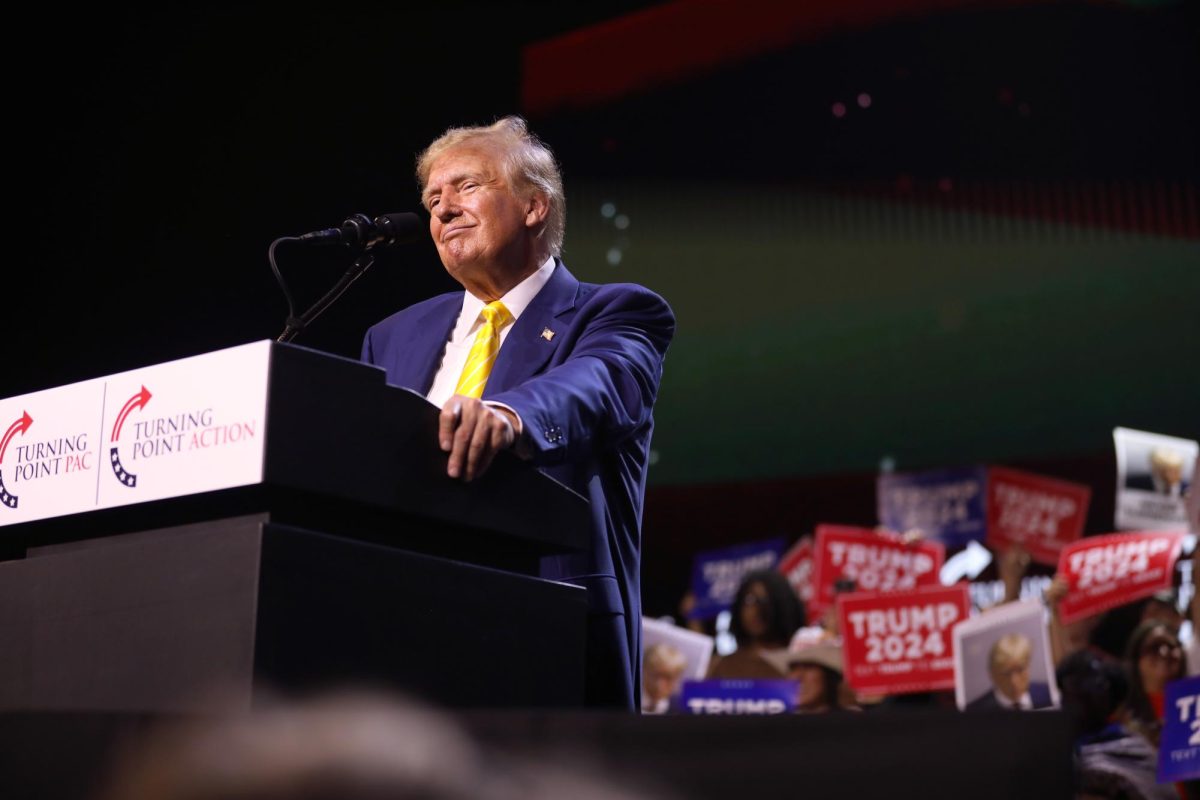Op-ed: Trump impeachment: morally correct, politically risky
October 9, 2019
An unnamed CIA official submitted a whistleblower complaint to the Inspector General of the Intelligence Community Aug. 12, alleging that President Donald J. Trump abused his powers as the 45th president of the United States for his own personal and political gain. On Sept. 9, U.S. lawmakers were made aware of the complaint, and Nancy Pelosi, the speaker of the United States House of Representatives, initiated an official impeachment inquiry against Trump Sept. 24.
The nine-page complaint reveals corruption in the highest echelons of the American federal government, releasing a Pandora’s box of questions regarding the ethical obligations of Congress to impose checks and balances on the Trump administration and the political ramifications this issue will have on the 2020 election.
The complaint singles out a phone call between Ukrainian President Volodymyr Zelensky and Trump, which took place July 25. During the conversation, which was declassified Sept. 24, Trump asked Zelensky to investigate former Vice President Joe Biden, alleging he abused his federal powers in 2015 by pressuring the Ukrainian government to fire their then-prosecutor general Viktor Shokin. Trump argues Biden wanted Shokin fired in order to protect his son, Hunter. At the time, Shokin was pursuing corruption charges against Burisma Holdings, a Ukrainian energy company for which Biden’s son was a board member.
This Ukraine-Biden conspiracy theory loses legitimacy when you consider the international community, including the European Union and the International Monetary Fund, was already calling for Shokin to be fired because he enabled corruption by declining to investigate key Ukrainian politicians. Moreover, the timeline outlined by Trump doesn’t match up; the investigation into Burisma Holdings by Shokin’s office was shelved over a year before Biden began pressuring Ukraine, making it unlikely that Biden was trying to protect his son. Trump’s attempt to pressure a foreign government into taking part in an investigation that would help him in domestic politics constitutes a flagrant abuse of presidential power.
Additionally, days before the now-infamous July 25 phone call, Trump ordered his chief of staff to withhold $400 million in military aid from Ukraine. House Democrats allege that Trump did so in order to have a quid pro quo — if Zelensky investigates Biden, then the United States would release the withheld military aid to Ukraine and, in addition, grant Zelensky a visit to the White House.
Trump said there was no such agreement, but recent text messages released by Kurt Volker, former U.S. envoy to Ukraine, indicated that “both American and Ukranian officials understood that there was a quid pro quo,” according to an analysis by the Atlantic. For example, Volker wrote in one text that “assuming President Z convinces Trump he will investigate/‘get to the bottom of what happened’ in 2016, we will nail down date for visit to Washington.” In another message, Bill Taylor, the highest-ranked U.S. diplomat in Ukraine, succinctly offered his opinion on the matter by stating that “it’s crazy to withhold security assistance for help with a political campaign.”
As a result, it’s easy to see the argument that Trump abused his presidential powers for political gain. He withheld over $400 million in military aid from Ukraine — money that would have gone towards bolstering Ukraine’s defense against Russia, a U.S. adversary — in order to convince a foreign leader to investigate Biden, a political figure who has a real chance of defeating him in the upcoming election. Not only did he violate political norms, which really shouldn’t come as a surprise, but his actions were probably illegal. House legislators have the moral and legal authority to open an impeachment inquiry into Trump’s conduct.
However, although this inquiry is legitimately based, we must consider its political ramifications. To be blunt: even if the House impeaches Trump, he is unlikely to be removed from office by the Republican-controlled Senate, since impeachment proceedings require 66 senators to vote against him. With a hyper-partisan Senate containing only 47 Democrats, removal from office remains unlikely. Since the inquiry likely won’t result in Trump’s removal, its political ramifications will be felt most widely during the coming election. The impeachment process could either harm or help Trump’s reelection bid depending on how it is carried out.
If the inquiry is carried out in a flimsy and disorganized manner, it will lose legitimacy, making it less likely to deter Americans from voting for Trump in 2020. The entire investigation could backfire if Trump rewrites the narrative and successfully portrays the inquiry as a “witch-hunt” to a sufficient amount of voters — voters who are already prone to believing almost everything Trump says.
Conversely, if the investigation is well-organized and continues to reveal clear, compelling evidence, Democratic and independent voters may greatly outnumber Republicans at the ballot box. This seems to be the case so far, according to various polls. Before the scandal unfolded, only about 40 percent of Americans supported a Trump impeachment, while about 50 percent didn’t support it. After the revelations, these numbers almost inverted: the percentage of people supporting impeachment jumped to 47 percent, while those that do not dropped to 45 percent. Since we’re talking about a president who barely won his first election, these numbers are significant.
As the scandal continually unfolds, we’re seeing Trump crack under the weight of the accusations made against him. He keeps changing his defenses. He keeps posting almost incomprehensible tweets. And he, in the face of an impeachment inquiry investigating him for seeking the help of foreign powers, publicly called on China to investigate Biden. You can’t make this up.
“This is not about politics. This is about corruption,” Trump said, defending himself last Friday — and he’s right.
Poon Singhatiraj is a first-year international affairs major.







